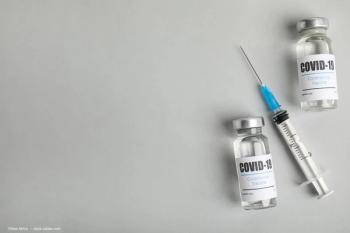
AAO: New recommendations to EyeMDs for urgent, nonurgent care amid COVID-19
The American Academy of Ophthalmology (AAO) strongly recommends that all ophthalmologists provide only urgent or emergent patient care given the current coronavirus pandemic situation.
The American Academy of Ophthalmology (AAO) strongly recommends that all ophthalmologists provide only urgent or emergent patient care given the current coronavirus pandemic situation.
This includes both office-based care and surgical care, said the AAO in a statement to ophthalmologists-who have already heeded the call to cease elective surgeries and practice social distancing in their offices due to the COVID-19 pandemic.
This is a “bold, but necessary” action to protect patients, colleagues, and the nation, said David W. Parke II, MD, chief executive officer of the academy.
The AAO recognizes that “urgency” is determined by physician judgment and must always consider individual patient medical and social circumstances. Each of us has a societal responsibility not to function as a vector of a potentially fatal disease-and one for which a widely available treatment or vaccine does not currently exist, the AAO said.
“Many of the patients we see have blinding conditions like glaucoma and have spent years visiting us regularly to make sure their disease does not progress,” said AAO President Anne L. Coleman, MD, PhD, professor of ophthalmology at the UCLA Stein Eye Institute and professor of epidemiology at the UCLA Fielding School of Public Health, where she researches the public health impact, risk factors, causes, and treatments of blindness worldwide.
“Even though they may currently be considered stable by us because the disease has not progressed, they worry that they may start to have progression that will not be picked up in a timely manner because we have delayed their appointment,” Dr. Coleman said. “This causes anxiety, which may lead to fear.”
Thus, it’s important for ophthalmologists to look over their patient schedules and decide which patients need to be seen and are considered urgent and which can have their appointments delayed, Dr. Coleman added. The patients then feel better because they are aware that they were not randomly postponed but were postponed because the ophthalmologist believes it is okay.
What steps are practices putting in place for ophthalmic patients who are in need of urgent or emergent care?
Dr. Coleman noted that in her practice, “We are calling the patients and pre-screening them prior to any visits to determine if they have a fever, new cough, or flu-like symptoms or have done recent international travel within the last 14 days, or have had contact with someone diagnosed with COVID-19 in the last 14 days in accordance with the CDC guidelines.”
We then have a staff member wearing appropriate personal protective equipment (PPE): gloves, gown, face mask or shield, and goggles to great patients prior to them entering into the waiting room. They ask 3 questions:
1. Have you had a fever in the last 14 days?
2. Do you have a new cough?
3. Do you have flu-like symptoms?
In the waiting room, we have them sit 6 feet apart and once they get up we wipe down the chairs and any touch zones with more than 60% alcohol wipes or a bleach solution. We are also meticulously disinfecting the exams rooms before and after the patient. We have a no-talking rule at the slit lamp for the ophthalmologist and patient. In addition, we have breath shields on all of the slit lamps.
The academy suggests patients contact their ophthalmologist’s office and request a phone appointment to discuss options. For instance, some patients with age-related macular degeneration (AMD)-depending on how long they’ve been treated and the stability of their disease-might be able to stretch time between treatments.
“We are doing our best to treat those with anti-VEGF related conditions-AMD, DME, and RVO-who are at risk for vision loss and then extend their interval of their next visit to what is most appropriate,” said Rishi P. Singh, MD, staff physician, Cole Eye Institute, Cleveland Clinic, and medical director, Clinical Systems Office, Cleveland Clinic.
“Clearly, this is a major public health issue and we are following the AAO guidance to defer our routine follow-up visits,” said Dr. Singh, who is also associate professor of ophthalmology, Case Western Reserve University, Cleveland. “We are also allowing some of our providers to work with patients virtually whenever possible. While it is not perfect for all ophthalmic specialties, it can work in some of the simple issues like red eye, or in cosmetic consultations, or for postoperative patients.”
The AAO also suggests that patients with AMD or diabetes may use an Amsler grid to track their vision at home, to help detect changes in their vision that may need to be checked out by an ophthalmologist.
“The Amsler grid is a great test and we do encourage that with our patients,” Dr. Singh added. “Ultimately, concepts like home OCT and other validated imaging modalities would be incredibly useful at this time of quarantine.”
Effect on philanthropic medical missions
The COVID-19 outbreak is having a devastating impact on philanthropic medical missions, both locally and globally, according to Dr. Coleman.
The missions from UCLA Stein Eye Institute Center for Community Outreach and Policy into the homeless communities and schools have ceased. This means that there will be more vision loss and blindness in these populations which will only increase as the length of time we are without a vaccine increases.
Unfortunately, at this time there is nothing else we can do because of the limited supplies of PPE, the risk of asymptomatic transmission, and the potential of a huge tsumani of those with COVID-19 overwhelming our healthcare system. Globally, all philanthropic travel on medical missions has ceased or is not advised, she noted.
“However, in addition to not having U.S. doctors providing mission care, overseas philanthropic medical missions and hospitals are at risk of financial vulnerability because not all of them have reserves with which to keep their doors open,” Dr. Coleman said. “The longer the pandemic continues, the greater the impact and ramifications.”
Newsletter
Don’t miss out—get Ophthalmology Times updates on the latest clinical advancements and expert interviews, straight to your inbox.





























